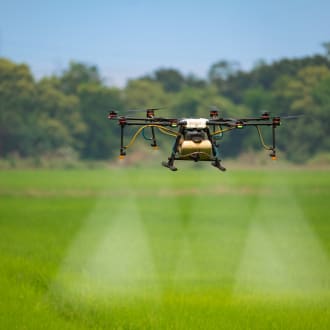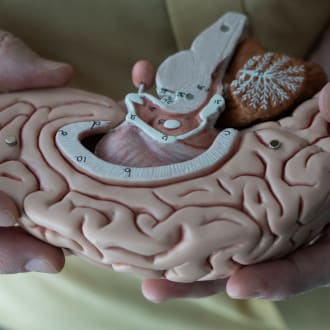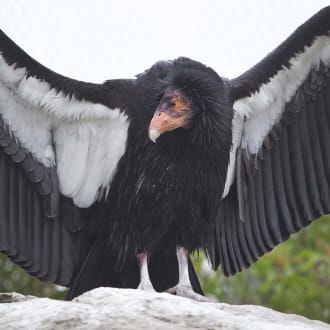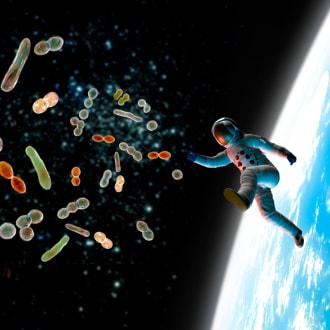The Best of Undark Magazine
20+ most popular Undark Magazine articles, as voted by our community.
Trending
These are currently making the rounds on Refind.
Book Review: The Mysteries and Quirks of Human Memory
There's a reason we keep forgetting things, Charan Ranganath writes in "Why We Remember," and we needn't worry about it.
Paul M. Sutter Thinks We're Doing Science (and Journalism) Wrong
In a new book, an astrophysicist has much to say about the public's lack of trust in science, and how it can be fixed.
The Burgeoning Science of Search and Rescue
By analyzing reports of people who got off track, researchers are advancing the science of “lost person behavior.”
New Genetic Tools Have Dramatically Changed Wildlife Conservation
To survey the planet's vast biodiversity, some scientists are banking on environmental DNA, robots, and more.
Undark Magazine on Artificial Intelligence
A New, Transparent AI Tool May Help Detect Blood Poisoning
The algorithm scans electronic records and may reduce sepsis deaths, but widespread adoption could be a challenge.
Can an Equation to Help Determine Kidney Health Be Racist?
A reckoning in medicine has upended the use of race in calculating kidney function, spurring institutional change.
Undark Magazine on California
The Gold Rush Returns to California
Demand for gold has risen in recent years. Not everyone is happy about that, especially some residents of Grass Valley.
Undark Magazine on Future
Rethinking Authenticity in the Era of Generative AI
Opinion | The latest technology exploits people’s reflexive assumptions. It's time to recalibrate how authenticity is judged.
Undark Magazine on India
For India's Millions of Farm Workers, a 'Drone Revolution' Looms
Faster and more efficient, drones are replacing laborers on Indian farms —despite the expensive price tag.
Undark Magazine on Nature
How New Zealand’s Pesky Pigs Turned Into a Cash Cow
The animals evolved into ultra-resilient, disease-free predators while isolated on Auckland Island.
Scientists Warned of a Salton Sea Disaster. No One Listened.
California's Salton Sea offers a tableau of dead wildlife, toxic dust, and neglect. It was long in the making.
Undark Magazine on Neuroscience
Advances in Mind-Decoding Technologies Raise Hopes (and Worries)
Devices that connect brains to computers are becoming increasingly sophisticated. Can the fledgling neurorights movement catch up?
Undark Magazine on Race
Field at a Crossroads: Genetics and Racial Mythmaking
As their research is twisted to fuel racist claims, many geneticists are weighing the societal risks of their work.
Undark Magazine on Science
It Took 35 years to Get a Malaria Vaccine. Why?
The parasite’s complex biology played a role in the delay, but experts say there was also a lack of urgency and funding.
«The people who are affected by malaria, "they're not Europeans, they're not Australians, they are poor African children," said Ashley Birkett, director of the malaria vaccine initiative at PATH, a non-profit global health organization. "Unfortunately, I think we have to accept that that is part of the reason for the lack of urgency in the community."»
Meditation Is Big Business. The Science Isn’t So Clear.
For years, mindfulness has been promoted as a near panacea. But just how much does the brain affect the body?
Popular
These are some all-time favorites with Refind users.
The Race to Produce Green Steel
In order to reduce its carbon footprint, the steel industry is testing new technologies that don't rely on fossil fuels.
How the Yurok Tribe Is Bringing Back the California Condor
The reintroduction of the long-lived, highly social birds has offered insight into the importance of parenting in the species.
Punishment, Puppies, and Science: Bringing Dog Training to Heel
Efforts to regulate dog training have centered on studies examining the efficacy of punishment as a training tool
For a More Sustainable Afterlife, Try Human Composting
Opinion | Vermont recently legalized a greener alternative to cremation and burial. More states should follow suit.
The Mysteries of the Astronaut Microbiome
The human microbiome has been linked to digestion, depression, and more. How might space travel change it?
What is Refind?
Every day Refind picks the most relevant links from around the web for you. is one of more than 10k sources we monitor.
How does Refind curate?
It’s a mix of human and algorithmic curation, following a number of steps:
- We monitor 10k+ sources and 1k+ thought leaders on hundreds of topics—publications, blogs, news sites, newsletters, Substack, Medium, Twitter, etc.
- In addition, our users save links from around the web using our Save buttons and our extensions.
- Our algorithm processes 100k+ new links every day and uses external signals to find the most relevant ones, focusing on timeless pieces.
- Our community of active users gets the most relevant links every day, tailored to their interests. They provide feedback via implicit and explicit signals: open, read, listen, share, mark as read, read later, «More/less like this», etc.
- Our algorithm uses these internal signals to refine the selection.
- In addition, we have expert curators who manually curate niche topics.
The result: lists of the best and most useful articles on hundreds of topics.
How does Refind detect «timeless» pieces?
We focus on pieces with long shelf-lives—not news. We determine «timelessness» via a number of metrics, for example, the consumption pattern of links over time.
How many sources does Refind monitor?
We monitor 10k+ content sources on hundreds of topics—publications, blogs, news sites, newsletters, Substack, Medium, Twitter, etc.
Can I submit a link?
Indirectly, by using Refind and saving links from outside (e.g., via our extensions).
How can I report a problem?
When you’re logged-in, you can flag any link via the «More» (...) menu. You can also report problems via email to hello@refind.com
Who uses Refind?
450k+ smart people start their day with Refind. To learn something new. To get inspired. To move forward. Our apps have a 4.9/5 rating.
Is Refind free?
Yes, it’s free!
How can I sign up?
Head over to our homepage and sign up by email or with your Twitter or Google account.



















